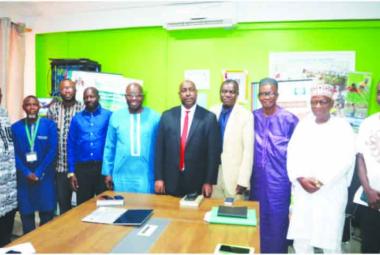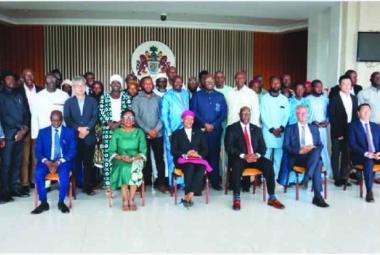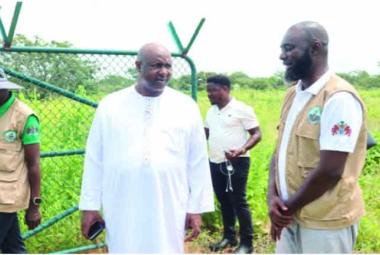By Fatou B. Cham
The Gambia Inclusive and Resilient Agricultural Value Chain Development (GIRAV) development project and Gambia Agriculture and Food Security Project (GAFSP) through the Ministry of Agriculture, have been approved and would be officially launched sometime in this month of April.
Aji Ramatoulie Hydara Sanyang, operations director of GIRAV, explained that the project is expected to support agricultural value chain development and to move The Gambia from subsistence to more market-oriented agriculture.
Funded by World Bank at tune of 40 million Dollars, the five-year project is also meant to promote the development of inclusive, resilient, and competitive agricultural value chains, focusing on smallholder farmers and agribusinesses in the project’s targeted areas.
The GIRAV project was submitted and approved by the World Bank Board on the 24th of November 2021. The project was signed by the Ministry of Finance and Economic Affairs on February 8th, 2022, and the Declaration on Effectiveness on March 15th, 2022.
The target priority value chains of the GIRAV project are: rice, horticulture, cashew, poultry, as well as maize which would be for poultry feed.
Geographically, the project will operate in 6 agricultural regions; namely, West Coast Region, North Bank Region, Lower River Region, Central River Region south and north, Upper River Region, and the two municipalities (Banjul and Kanifing), and in 35 districts.
On the other hand, the GAFSP project aims to increase food and nutritional security, as well as household income, particularly for the vulnerable households in five administrative regions: CRR (North and South), LRR, URR, NBR, and WCR, through the strengthening of the sustainable Home-Grown School Feeding (HGSF) Programme.
According to the Project Director, Momodou Sowe, the GAFSP project is designed to focus on improving the lives and livelihoods of 160,000 beneficiaries with 52% of them being female.
He revealed that the project will intervene in the commodities of rice, poultry, maize, millet, cassava, and beans, and that it will be implemented with the support of World Food Programme. Sowe affirmed that the project shall form the cornerstone of the country’s Home-Grown School Feeding Programme.






